FAQs
Insurance 101
What is health insurance, and why do I need it?
Health insurance helps cover the cost of medical care, including doctor visits, hospital stays, prescriptions, and preventive services. It protects you from high unexpected healthcare costs and gives you access to essential care.
What is a deductible?
A deductible is the amount of money you must pay out of pocket for healthcare services before your insurance plan starts to pay.
What is a copay?
A copay (short for copayment) is a fixed amount you pay at the time of service for a covered healthcare service—regardless of the total cost of that service.
What is co-insurance?
Coinsurance is the percentage of costs you pay after you’ve met your deductible, while your insurance covers the rest.
What is a Max Out of Pocket?
The maximum out-of-pocket (or out-of-pocket maximum) is the most you’ll have to pay in a year for covered healthcare services. Once you reach this limit, your insurance covers 100% of all covered costs for the rest of the year.
What is a Pre-Existing Condition?
A health condition for which any of the following occurred before the effective date of your insurance or you had signs or symptoms of the condition.
What is a PPO vs. EPO vs HMO vs POS?
PPO (Preferred Provider Organization)
- Flexibility: Most flexible of the four.
- Referrals: No referral needed to see a specialist.
- Network: You can see both in-network and out-of-network doctors. In-network is cheaper; out-of-network still covered but at a higher cost.
- Costs: Usually higher monthly premiums, but more freedom to choose providers.
Best for: People who want freedom to choose doctors without referrals and may need care while traveling.
HMO (Health Maintenance Organization)
- Flexibility: Most restrictive.
- Referrals: You must pick a Primary Care Physician (PCP), and need a referral to see a specialist.
- Network: Coverage only if you see in-network providers (except in emergencies).
- Costs: Lower premiums and out-of-pocket costs.
Best for: People who want lower costs and don’t mind having care coordinated through a PCP.
EPO (Exclusive Provider Organization)
- Flexibility: Middle ground between PPO and HMO.
- Referrals: Typically no referral required to see a specialist.
- Network: Must use in-network providers (except emergencies). No out-of-network coverage.
- Costs: Premiums usually lower than PPOs, higher than HMOs.
Best for: People who want direct access to specialists without referrals but are okay staying in-network.
POS (Point of Service)
- Flexibility: Hybrid of HMO + PPO.
- Referrals: You need a PCP and referrals for specialists.
- Network: In-network is cheaper; you can go out-of-network but it costs more (like a PPO).
- Costs: Premiums and flexibility fall between HMO and PPO.
Best for: People who want a PCP to coordinate care but still want the option to go out-of-network if needed.
The Coverage Corner
Where am I licensed?
Alabama, Arizona, Arkansas, California, Colorado, Florida, Georgia, Illinois, Indiana, Iowa, Kansas, Kentucky, Louisiana, Maryland, Michigan, Mississippi, Missouri, Montana, Nebraska, Nevada, New Jersey, New York, North Carolina, Ohio, Oklahoma, Pennsylvania, South Carolina, Tennessee, Texas, Utah, Virginia, Washington D.C., West Virginia, Wisconsin
How long have I been an Insurance broker?
I became licensed in 2014 and have been licensed for over 10+ years.
How do I know which plan is right for me?
Assess Your Healthcare Needs
- How often do I visit doctors or specialists?
- Do I take regular prescriptions?
- Do I have any planned procedures or chronic conditions?
- Do I prefer a specific doctor or hospital?
Know Your Budget
Consider both:
- Monthly premium (what you pay every month)
- Out-of-pocket costs (deductible, copay, coinsurance, out-of-pocket max)
Tip: Lower premiums usually mean higher out-of-pocket costs—and vice versa.
Check Provider Networks
- Are your preferred doctors or hospitals in-network?
- If not, are you willing to switch providers?
Can I add other products?
Yes—at The Coverage Corner, we’re your one-stop shop for all things health insurance. With over a decade of experience in the industry, we offer a full range of insurance products to meet your unique needs. Instead of juggling multiple agents or companies, you'll work with a dedicated broker who advocates on your behalf, helping you find the best rates and coverage. From individual and group health plans to Medicare, dental and vision, accident and critical illness coverage, life insurance, and even international policies—we’ve got you covered every step of the way.
Member Services
How can I set up my payments?
Depending on which carrier we enroll you with, your payments can either be auto drafted monthly using a checking or debit/credit card or can be made manually by calling, mailing or submitting the payments online.
How do I get my member ID card?
ID cards typically get mailed out about 7-14 business days after the effective date. You can also access a digital version through your carrier’s mobile app or online member portal.
When can I enroll in a health plan?
It depends on what type of insurance we enroll you into. Typically Medicare and Obamacare would be during the Annual/Open Enrollment Periods or if you qualify for a Special Enrollment Period due to a life event (e.g., job loss, birth, marriage). Private short term or individual group benefits, supplemental and international insurance plans can possibly be activated the very next day or the 1st of the month.
What am I supposed to do when my plan renews/expires?
Our team will be in touch with you about 30-45 days before your plan expires to reassess your best options. We will compare your current plan to other plans and see whether there are better rates and coverage available or stay with your current plan and renew it.
